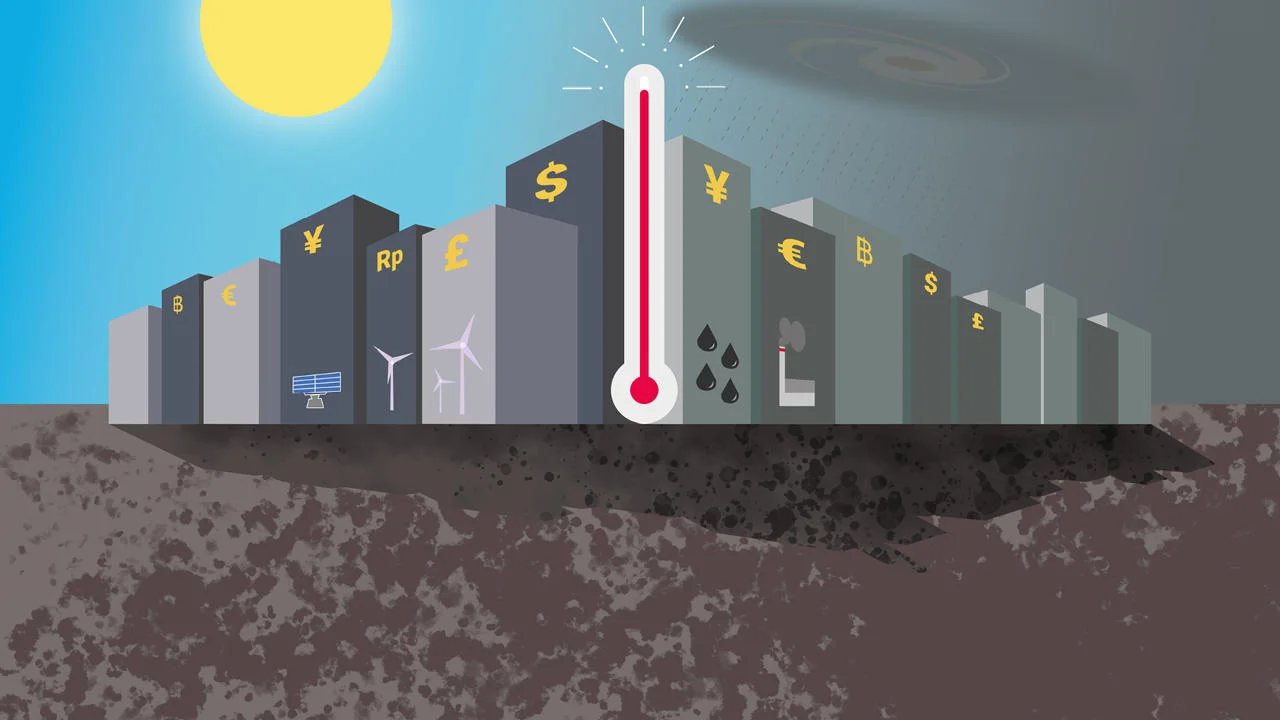State effectiveness and the climate crisis

Contents
The climate change emergency is already creating heatwaves, droughts, floods and fires, causing 20 million people a year to leave their homes – but it can still get worse.
"Any further delay in concerted global action will miss a brief and rapidly closing window to secure a liveable future," Hans-Otto Portner co-chair of the Intergovernmental Panel on Climate (IPCC)’s Working Group 2 warned earlier this year.
Already $100bn of climate finance a year has been pledged to the developing world by 2020 – and one of the four goals of the UK’s COP26 presidency is to ensure that pledge is met in future, but alongside the challenge of raising the money is the work of ensuring that it is used effectively.
There's only so far you can go if the core state capacities don't exist.
Professor Tim Besley, School Professor of Economics and Political Science in LSE’s Department of Economics, has long been interested in what states need to have in place to achieve their goals – in their capacity to deliver. To be successful, climate financing for developing countries will need enabling institutional structures and governance, says Professor Besley. Such institutions help private and public money flow to where it is the most effective, can co-ordinate actions and create incentives for change.
"I make the distinction between bespoke state capacities and generalised state capacities," he explains. "Generalised state capacities are things like just having a functional legal system so you can agree contracts with people and have meaningful legal relationships with them. Raising tax revenue is a generalised capacity because the states can’t do a lot unless they can raise money, and some sort of core competence in delivering basic services to citizens, particularly education, healthcare, are core state capacities.
"Then there are the more bespoke state capacities that are needed to deliver very specific programmes. Flood defences would be an example - different countries will have different needs and there’s no one correct way to do this. In some of the climate change related areas, some amount of bespoke state capacity building is in order, but there's only so far you can go if the core state capacities don't exist at all."
The beauty of scaffolding
The importance of fiscal (eg, tax-raising) and legal (enforcing contracts) state capacity was highlighted by Professor Besley and co-author Torsten Persson in their seminal work Pillars of Prosperity (2011) which showed how economic development and state capacity were linked. Later work also includes collective capacity – the ability of a government to provide public goods and services.
How did Professor Besley become interested in this work?
"Time and time again, it became clear the policy failure was not through a lack of good ideas," he explains. "It was through a lack of implementation capacity, and so I was drawn to that."
The analogy he uses is that we need more focus on scaffolding and less on architecture.
"When you look at a beautiful building and see the finished thing it gives you almost no clue as to how it was built… and the scaffolding is particularly important because it supports structure during a critical phase when it can't support itself," he says.
In a situation where there are people starving, or a health emergency, nobody thinks about providing state capacity.
We need to both address urgent need and build state capacity for future action
We talk as polar regions have recorded temperatures 30C-40C higher than usual. How much time should be spent during this "brief and rapidly closing window" on anything other than direct action?
There is a real dilemma, agrees Professor Besley, in striking the balance between rapid delivery and building state capacity in developing countries.
"In a situation where there are people starving, or a health emergency, nobody thinks about providing state capacity, they just get on with dealing with the problem on the ground and that’s normally done by non-governmental organisations (NGOs)."
But the risk facing medium-range projects, over five to 10 years, such as climate change work is that such outside support ends up undermining state capacity.
Professor Besley and Torsten Persson’s work on development policy in fragile states – those states which are least able to act – has provided a framework, a mental map, for thinking about how state capacity investments link to development.
The vaccine programme is a good example of how, when we turn our minds to things, we can actually make a difference.
And when it comes to navigating the climate crisis, we all need maps. Developed countries have a good level of generalised state capacity, but the massive transformation needed to ensure net-zero, requires more. The UK’s National Infrastructure Commission (Professor Besley is one of the commissioners) is one example. It was set up in 2016 to support the government deliver improvements in infrastructure – in 2021 it was given the additional remit of supporting climate resilience and the transition to net zero carbon emissions.
We’re all in this together
The pandemic involved having to rapidly enact massive societal changes. What can we learn from our recent experience?
"The vaccine programme is a good example of how, when we turn our minds to things, we can actually make a difference – that is an example of the sort of creation of state capacity I mean," Professor Besley says.
The pandemic also highlighted the importance of trust between citizens and government. If a state is asking individuals to act for the benefit of all, it must first be listened to - and believed. Independent institutions are a form of state capacity, that can help build such trust.
As we face the existential threat of climate change, the stakes have never been higher. Scientists, engineers, politicians and academics are praised for creating solutions – but without that invisible scaffold of penpushers, administrators and bureaucrats, the effort to save the world may collapse.
Professor Tim Besley was speaking to Helen Ward, Head of Public Affairs and Communications at the Centre for Economic Performance at LSE.
Download a PDF version of this article




